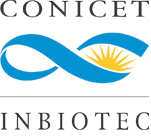Planta, vol. 251, Article number: 21, 2019
Abstract
Target of rapamycin (TOR) signaling is a central regulator of growth and development in eukaryotic organisms. However, its regulation under stress conditions has not yet been elucidated. In Arabidopsis, we show that TOR transcripts and activity in planta are finely regulated within hours after the onset of salt, osmotic, cold and oxidative stress. The expression of genes encoding the partner proteins of the TOR complex, RAPTOR3G and LST8–1, is also regulated. Besides, the data indicate that TOR activity increases at some time during the adverse condition. Interestingly, in oxidative stress, the major TOR activity increment occurred transiently at the early phase of treatment, while in salt, osmotic and cold stress, it was around 1 day after the unfavorable condition was applied. Those results suggest that the TOR signaling has an important role in the plant response to an exposure to stress. Moreover, basal ROS (H2O2) levels and their modification under abiotic stresses were altered in TOR complex mutants. On the other hand, the root phenotypic analysis of the effects caused by the diverse abiotic stresses on TOR complex mutants revealed that they were differently affected, being in some cases less sensitive, than wild-type plants to long-term unfavorable conditions. Therefore, in this work, we demonstrated that TOR signaling is tightly regulated under abiotic stresses, at transcript and activity level, with different and specific time-course patterns according to the type of abiotic stress in Arabidopsis. Taking our results together, we propose that TOR signaling should be necessary during the plant stress response.
